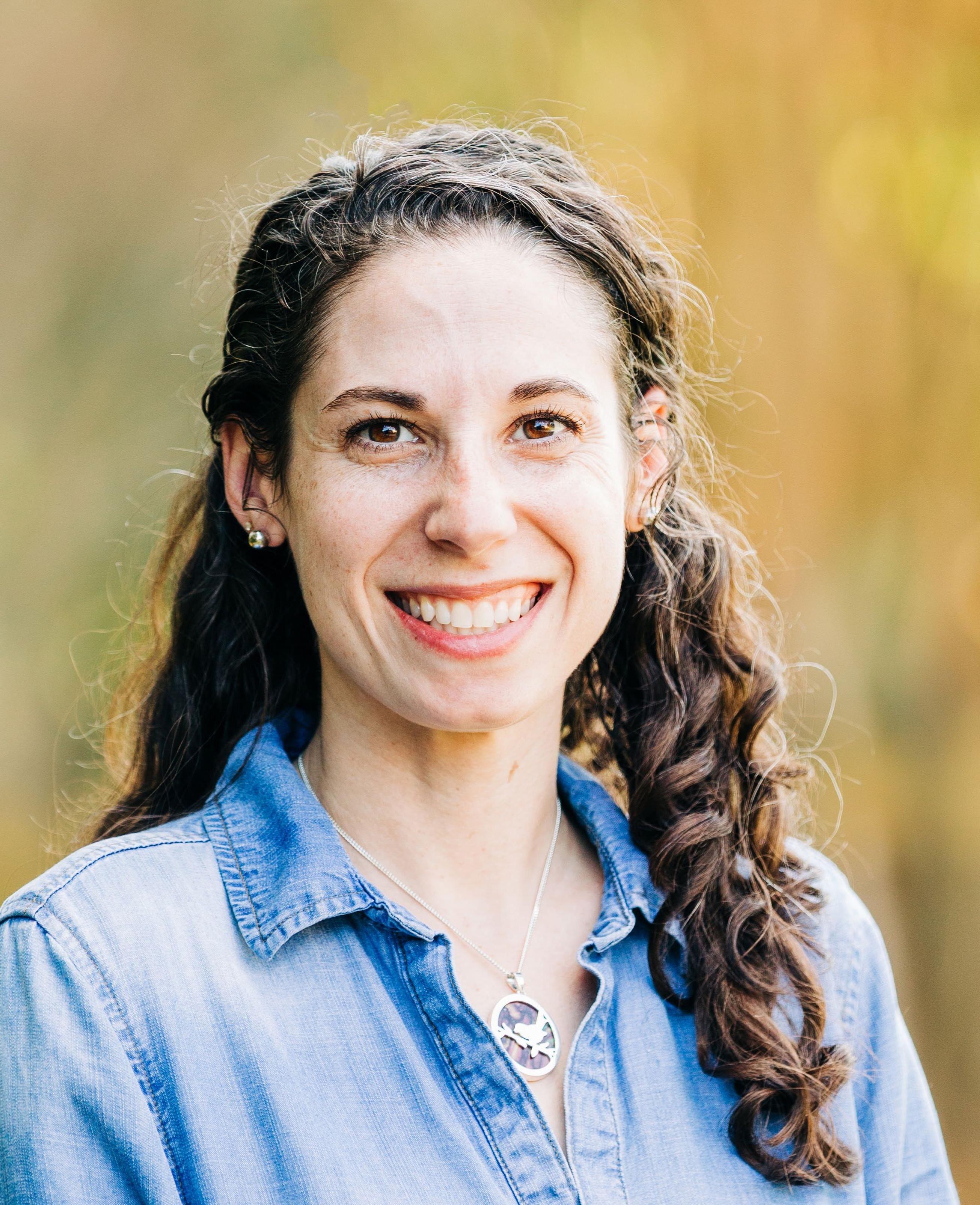Doctor of Education with a Major in School Improvement
Credit Hours: 33-60
The online Ed.D. program in School Improvement offers a unique opportunity for educators looking for an interdisciplinary, inquiry-based doctoral program that prepares graduates to become the next generation of change agents. Our mission is to develop educational professionals who initiate systemic and sustainable improvement in schools. Graduates will strategically and collaboratively plan, design, implement, and document the impact of educational improvements that promote and increase the academic achievement and social development of all students.
Fill out this form for more information!
Click here to review Frequently Asked Questions (FAQs)
For more information, please see the Academic Catalog. A program sheet, which provides a required coursework sequence, is available for download in the Courses tab below.
Coursework
Through a unique synergy of capstone classes, workshops, and faculty mentoring, students will complete their culminating projects simultaneously with coursework.
33-hour program: Program Sheet
Students who already hold an Ed.S. degree and a Level 6 certificate in a GaPSC-approved teaching, service, or leadership field may apply for the 33-hour concentration. The 33-hour program can be completed in as little as 2 years.
60-hour program: Program Sheet
Students who do not already hold an Ed.S. degree are eligible for the 60-hour track, and will need to declare an Area of Concentration. The 60-hour program can be completed in as little as 3 years.
The Areas of Concentration (or AoC) in the School Improvement program are 15 credit hours of electives that comprise a student's focus within the program. Specific AoC's are developed in conjunction with various departments within the College of Education at the University of West Georgia. Currently, the available AoC's include:
- School Counseling
- Educational Leadership
- K-12 Online Learning
- Instructional Technology
- Reading
- Media Specialist
- Teaching English to Speakers of Other Languages (ESOL)
- Special Education
- Early Childhood Education
Another option available to students is to develop a customized AoC. At a minimum, an individualized AoC must meet the following criteria:
- It must have a thematic, cohesive foundation.
- It must consist of a minimum of 15 semester hours of credit.
- The coursework must be post-Masters level.
- It must be approved by the Director of the Ed.D. Program in School Improvement.
- It must have been completed within seven years of the date of admission to the Ed.D. degree program.
- A grade of B or higher must have been earned in the coursework.
A customized AoC does not have to be taken only at our University. If you want a specialized, unique Area of Concentration, you can "assemble" one from another institution (either online or face-to-face), provided it meets the minimum criteria listed above AND that the hours were completed at an accredited institution. These hours could then be transferred into the program.
Please note that any customized AoC must be pre-approved by the Program Director upon admission to the program.
Downloads
General
This course focuses on the theories, concepts, and processes involved in planning and managing evaluations. Students will engage in evaluations in specific education situations (individual, group, organizational) using focus groups, key stakeholder interviews, survey design, data gathering, analysis and/or other methods as appropriate and analyze outcomes to make recommendations for development and/or remediation.
Students will evaluate scholarly research and completed dissertations for appropriate 1) research alignment, 2) organizational theoretical/conceptual frameworks, 3) program supported methodologies, 4) academic writing for doctoral-level work, and 5) APA Style.
This course is designed to provide educators with the opportunity to explore the theory and practical application of school reform efforts through a social justice lens with a focus on equitable outcomes for students. The structure of the course will include a survey of relevant literature from multicultural and social justice thinkers and leaders with approaches that create more inclusive classrooms and schools and equitable outcomes. Issues will be considered at multiple levels including overarching questions of multiculturalism, equity, the role of schooling, educational reform, and culturally relevant teaching and educational practices. In addition, students will examine their own attitudes as well as the impact of policy and practice decisions on the students and communities they serve.
This course is an advanced study of educational policy; the intersection of policy, law, and ethics; and the impact of these on education broadly and school improvement specifically. It is designed to enable educators to become knowledgeable, effective, and responsible actors within the political context of schooling.
This course addresses the theories and processes of change in societies, cultures, and organizations with particular emphasis on change within the educational systems. Completion of this course will enable students to effectively use theories and processes in their role as change agents within their own educational environments. Change strategies that lead to school improvement are emphasized.
Students build a conceptual understanding of the knowledge base that shapes organizations, human behavior in organizations, and school improvement. Students learn current theories of administration, contributions of behavioral science research to solving administrative problems, and the implication of theoretical orientations to school improvement. Organizational climate and culture, socialization and human behavior, and decision making are key themes. A course focus includes learning the dimensions of organizational qualities that contribute to school improvement as well as strategies to recognize and address any dysfunction that inhibits organizational functions.
Students learn to improve curriculum and instruction in K-12 schools by examining the relationship between curriculum, instructional improvement, and teacher development. Students discover the changing role of an instructional leader as it relates to the instructional program and its impact on school improvement. Students will investigate pertinent research and best practices in instructional leadership, learning theory, climate and culture, effective teaching methods, and professional development.
Students will investigate pedagogies, structures, organizational models, curricular approaches, and the research that supports authentic school improvement. Attention is given to implementation processes and how to systematically extend improvements to scale. Students will examine these concepts in the context of school turnarounds, innovative practices, school reform, and high-performing schools.
This course provides an overview of quantitative, qualitative, and mixed methods research designs. Students will learn the fundamental components of research design including developing research questions, reviewing scholarly literature, exploring theory and theoretical frameworks, and the role of ethics in educational research.
This course introduces the graduate student to basic methods of empirical inquiry used in education, nursing, and related social sciences. Quantitative research designs commonly used in these disciplines are emphasized. Students will learn how to select samples, identify appropriate measurement instruments, analyze data descriptively, and apply a variety of inferential statistical tests to answer research questions.
This course focuses on the use of qualitative methods of research, including theoretical perspectives and methods of collection and analysis of qualitative data sources in educational studies. It emphasizes analysis of work samples, observations, inquiry data, artifacts, and other sources of data. Students become skilled at using methods of qualitative research to evaluate school improvement issues. In addition, students examine strategies for thematic and other forms of analysis of observational and inquiry data. Throughout the course students collect and analyze school improvement data.
The Doctor of Education in School Improvement Program offers a unique opportunity for educators looking for an interdisciplinary, inquiry-based doctoral program that prepares graduates to become change agents in the PK - 12 schools they serve. Coursework is offered 100% online.
There are several unique features of the Doctor of Education in School Improvement. These include the following:
- There are 2 tracks: a 60-hour program for those who do not already hold an Ed.S. degree, and a 33-hour track for those that do already hold an Ed.S. degree along with a Level 6 certificate in a Georgia-approved teaching, leadership, or service field.
- All coursework is delivered through an asynchronous online environment, using a wide variety of instructional technologies.
- Students are required to complete an online orientation.
- Faculty are nationally recognized, committed to school improvement, and understand the needs of adult learners.
Link to Frequently Asked Questions (FAQs)
Email: eddsi@kllkj.net
Program Location
Online
Method of Delivery
Fully Online Only
Accreditation
The University of West Georgia is accredited by The Southern Association of Colleges and Schools Commission on Colleges (SACSCOC).
Credit and transfer
Total semester hours required: 33-60
Graduate students may be able to reduce their cost through prior learning, previous degrees earned at 澳门新普京注册, or transfer credits. We have created a tool to help students estimate their tuition costs.
This program is offered entirely online. Though a student may choose to sign-up for a face-to-face elective or core course, one can earn this degree completely online.
Save money
澳门新普京注册 is often ranked as one of the most affordable accredited university of its kind, regardless of the method of delivery chosen. In addition, online courses and programs can mean a huge cost-savings in many non-evident ways: No more high gas charges. No childcare needed. The flexibility can allow one to maintain a job while attending school. Regardless of state residency, out-of-state non-resident students are not charged non-resident tuition for online course credit hours.
Details
- Total tuition costs and fees may vary, depending on the instructional method of the courses in which the student chooses to enroll.
- The more courses a student takes in a single term, the more they will typically save in fees and total cost.
- Face-to-Face or partially online courses are charged at the general tuition rate and all mandatory campus fees, based on the student's residency (non-residents are charged at a higher rate).
- Fully or entirely online course tuition rates and fees my vary depending on the program. Students enrolled in exclusively online courses do not pay non-Resident rates.
- Together this means that GA residents pay about the same if they take all face-to-face or partially online courses as they do if they take only fully online courses exclusively; while non-residents save money by taking fully online courses.
- One word of caution: If a student takes a combination of face-to-face and online courses in a single term, they will pay both all mandatory campus fees and the higher eTuition rate.
- For the cost information, as well as payment deadlines, see the Student Accounts and Billing Services website
There are a variety of financial assistance options for students, including scholarships and work study programs. Visit the Office of Financial Aid's website for more information.

Jennifer K. Allen, Ph.D.
Associate Professor

Logan Arrington, Ph.D.
Interim Department Chair

Stacey Britton, Ph.D.
Associate Professor

Ryan Bronkema, Ph.D.
Interim Chair

Morris Council, III Ph.D.
Associate Professor, Assistant Department Chair

Adriana D'Alba, Ph.D.
Associate Professor


Lama K. Farran, Ph.D., CCC-SLP
Professor of Speech-Language Pathology

Michelle Frazier Trotman Scott, Ph.D.
Director Of Graduate Affairs and Professor of Special Education

Katy Green, Ph.D.
Professor, Interim Department Chair

Robert A. Griffin, Ed.D.
Associate Professor & Assistant Chair of Reading Programs

Kim C. Huett, Ed.D.
Associate Professor

Melissa Johnston, Ph.D.
Professor

Laurie Kimbrel, Ed.D.
Associate Professor

Diana Mindrila, Ph.D.
Professor

Andy Nixon, Ed. D.
Associate Professor

Abbot Packard, Ph.D.
Professor

John Ponder, Ph.D.
Department Chair, Associate Professor

Elizabeth Pope, Ph.D.
Director of Research Compliance & Associate Professor, Educational Research

Bethany L. Scullin, Ph.D.
Associate Professor

Janet Strickland, Ph.D.
Associate Professor

Mary Alice Varga, Ph.D.
Department Chair & Professor

Guidelines for Admittance
- All graduate applicants must complete the online Grad Application. A one-time application fee of $40 is required.
- International applicants are subject to additional requirements and application deadlines. See Procedures for International Students.
- Earned Masters degree from a regionally or nationally accredited institution.
Program Specific Admittance Guidelines
Application Process (Please read to bottom of page):
Thank you for your interest in the University of West Georgia. Admission to the Doctor of School Improvement Degree is competitive; consequently students are urged to submit the strongest possible application materials. All applicants, including previous 澳门新普京注册 students, must complete all steps of the application process as outlined below. Only applications completed by the deadline will be considered. The department will begin reviewing applications after the deadline.
*Please Note: Admission to the Doctor of Education in School Improvement is competitive and completion of required coursework is highly challenging. In analyzing variables correlating to candidate success, both successful candidates and faculty members emphasize the importance of candidates being in leadership positions allowing them to fulfill the program's mission and expectations of initiating and leading systematic and sustainable school improvement on programmatic, departmental, schoolwide, or districtwide levels. If an applicant is not in a leadership position, the faculty may recommend she or he delay application until he or she is in a leadership position, significantly increasing the likelihood of her or his success.
INFORMATION FOR STUDENTS WITH MASTER’S DEGREE - 60 CREDIT TRACK
Program of Study: 60 credit hours
- Includes 15 hours for area of concentration
- It is strongly encouraged for students to pursue an area of concentration in an area where they have initial certification or upgrade eligibility per the district and the Georgia Professional Standards Commission (students are responsible for communicating with GaPSC about their eligibility)
INFORMATION FOR STUDENTS WITH SPECIALIST DEGREE - 33 CREDIT TRACK
Program of Study: 33 credit hours
- The program is GaPSC-approved to offer upgrades to students with an Ed.S. in all teaching, service, and leadership fields
- Area of concentration courses are not required in this program of study track
- This track consists of 33 credit hours:
- 15 hours of courses in core school improvement content
- 9 hours of research courses
- 9 hours of School Improvement Capstone Experience
Admissions Criteria (for Both Tracks)
- Online Application
- Writing Sample (5-10 pages from a previously written work from previous graduate degree or work report)
- Vitae that includes experience with school improvement
- Official transcripts from all degree-granting institutions (Associates, Bachelors, Masters, Specialist, etc.)
- School Improvement Personal Statement:
- Complete a 750-1,000 word essay that uses scholarly literature (e.g., research articles) to connect your experience with school improvement and your professional goals with the body of research related to the topic.
- Explain how research has informed your professional practice and what outcomes you believe are possible when implementing effective school improvement practices.
- Please write your essay in APA, 7th edition format, including citations and a reference list.
Incomplete applications will not be considered.
Finalists may be selected for a telephone or virtual interview.
Thanks again for your interest and best of luck!
Application Deadlines
Graduate Application Deadlines: Click Here
Contact
Graduate Admissions
graduate@kllkj.net
678-839-1394
College of Education, School Improvement
eddsi@kllkj.net
The Doctorate In School Improvement Program Website includes a directory of instructors and their credentials, as well as other vital information.
It is the goal of our program and its faculty that our graduates:
- Develop a strong knowledge base on theories and practices in PK - 12 educational leadership, instruction, and applied research.
- Effectively engage and influence stakeholders with a common purpose towards PK - 12 school improvement.
- Conduct research that can be applied to initiate and sustain PK - 12 school improvement.
- Lead evidence-based research efforts to promote and increase equitable student learning and development for all students.
